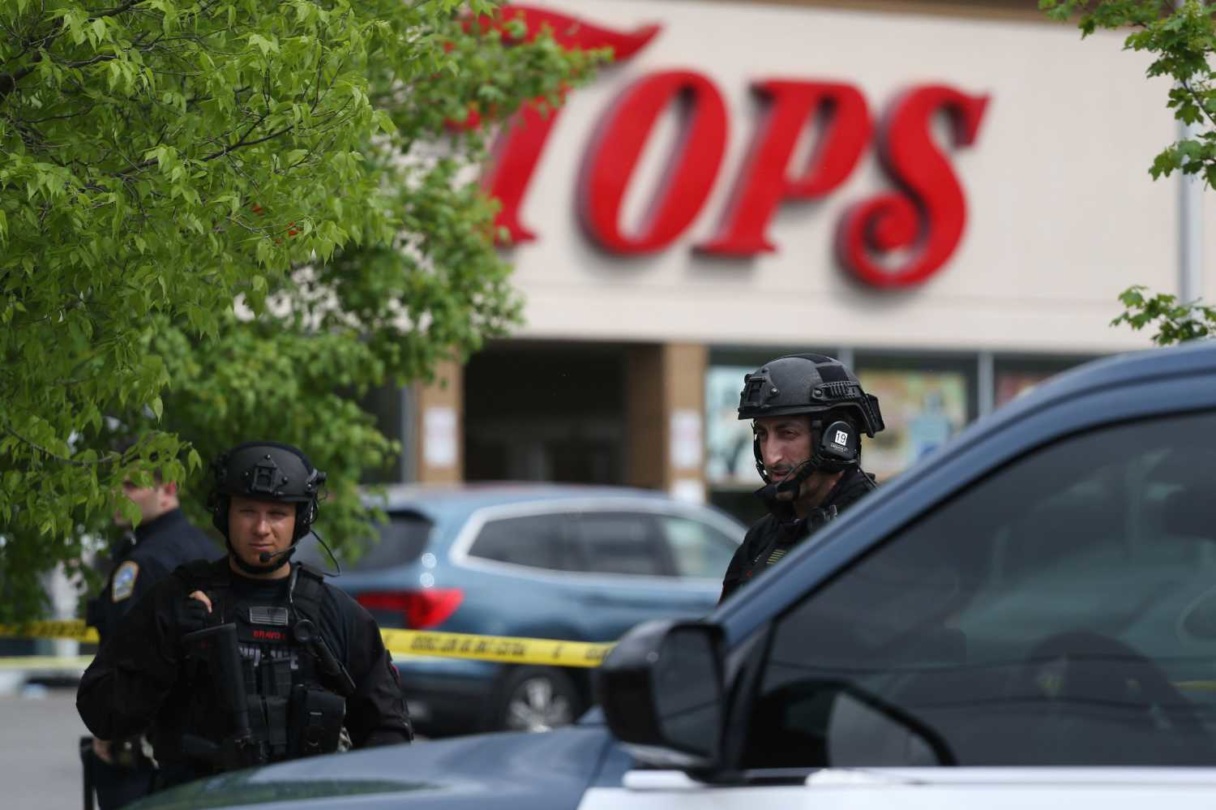
More Info
Credit: Photo by Joshua Bessex/AP/Shutterstock (12940296b)
NLP response to Buffalo mass shooting
In response to the mass shooting at a supermarket in Buffalo, New York this past Saturday, the News Literacy Project released the following statement:
“The horrific May 14 mass shooting in Buffalo was inspired by the ‘great replacement theory,’ a racist, antisemitic ideology that festers in extremist echo chambers online and has seeped into mainstream political discourse. The shooting — which killed 10 people, most of them Black — was briefly livestreamed on Twitch before being taken down, but copies of the video continue to proliferate across social media. Meanwhile, news organizations took different approaches to describing the attack and some failed to accurately describe the racist motivation that led to the shooting.
“Racist conspiracy theories like this have very real consequences and we must do a better job of responding to them. We urge these institutions to take the following steps:
- Our education system must teach young people about conspiracy theories that can lead individuals to fall for false narratives that have violent, real-world consequences. News literacy education helps people learn to think critically and gain the skills to be smart, active consumers of news and other information and engaged participants in a democracy.
- Social media companies should strengthen their content moderation standards and devote necessary resources to strictly enforce their own terms of service policies. Devastating shootings, such as this one, happen frequently enough that these platforms should be able to respond immediately to limit the spread of hateful attacks.
- News organizations should avoid using euphemisms to describe these kinds of incidents. Once it was clear that the shooter intentionally targeted Black people, using language like “racially motivated” without also describing the attacks as racist dilutes and sanitizes the intent behind it. Accuracy matters, particularly when actions are fueled by disinformation and conspiracy theories. The news media should not hesitate to use strong but accurate language — such as “racist,” “antisemitic,” “extremist” and “white supremacist” — to describe the shooting and the “great replacement” ideology that appears to have motivated it.
“Until these issues are forcefully addressed, we will continue to be vulnerable to the actions of those who have fallen down the rabbit hole of conspiratorial thinking.”